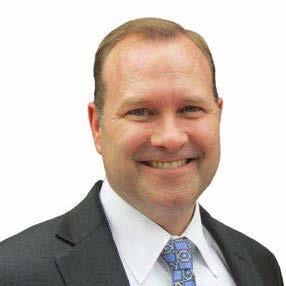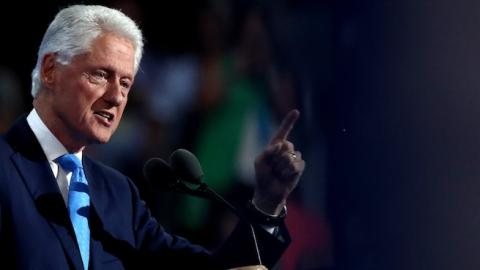Hillary Clinton doesn’t want to talk about Obamacare, but her husband clearly feels no such reluctance. Bill Clinton—who has his finger on the pulse of public sentiment to a greater degree than either President Barack Obama or Hillary—spoke rather freely about Obama's signature legislation early in October. Talking about "what to do now on health care," Clinton said the following:
[T]he current system works fine, if you're eligible for Medicaid—if you're a lower-income working person—if you're already on Medicare, or if you get enough subsidies, on a modest income, that you can afford your health care. But the people who are getting killed in this deal are the small-businesspeople, and individuals, who make just a little too much to get any of these subsidies. Why? Because they're not organized, they don't have any bargaining power with insurance companies, and they're getting whacked. So you've got this crazy system where all of a sudden 25 million more people have health care, and then the people who are out there busting it, sometimes 60 hours a week, wind up with their premiums doubled and their coverage cut in half. It's the craziest thing in the world.
So the former Democratic president, the husband of the current Democratic presidential nominee, says that Obamacare—which was passed solely with Democratic votes—is a crazy system that spikes people's premiums and cuts their coverage. The middle class are getting killed—whacked--and, all in all, it's the craziest thing in the world. Who says Bill Clinton isn't worth his extravagant speaking fees?
He could, of course, have gone further, pointing out that Obamacare is a classic 90/10 program: About 10 percent of people may have their lives made better by it, but about 90 percent find themselves worse off. And that's without even considering the increased federal spending involved for Obamacare's exchange outlays and its Medicaid expansion—about $100 billion a year and rising.
With all of the election talk about tax inequities, one of the biggest has gone essentially unmentioned. Millions of Americans get a welcome tax break for their job-based insurance, which isn't taxed as income. But their neighbors who have to buy their own insurance generally don't get a tax break and have to buy coverage with after-tax dollars. Obamacare hasn't fixed this longstanding problem, but a good alternative to Obamacare would.
Take the typical 36-year-old single woman making $36,000 a year who buys insurance on her own. According to the Kaiser Family Foundation health insurance marketplace calculator, none of Obamacare's direct outlays to insurance companies are paid on her behalf. Nor does she get a tax break. Under the Obamacare alternatives such as the one I worked on at the 2017 Project and the Hudson Institute, and those released by Ed Gillespie, Tom Price, and Scott Walker, she would get a tax cut of $2,100 in the form of a tax credit.
Under Obamacare, the single woman in question is being coerced into buying government-mandated insurance (and fined $695 for the privilege of living in America if she doesn't). Under the conservative alternatives, she'd be free to shop for insurance wherever she wants, would receive a tax break of $2,100 for buying that insurance, and could pocket the difference if the plan she chose cost less than that amount.
But what does Bill Clinton—and, more important, his wife—think we need "to do now on health care"? They want more government. Amazingly, the former president declared that, when it comes to health care, "the [private] insurance model doesn't work." Thus, we need to "let people buy in to Medicare or Medicaid." He added, "So, Hillary believes, we should simply let people who are above the line for getting these [Obamacare] subsidies have access to affordable entry into the Medicare and Medicaid programs. They'll all be covered."
That's a pretty clear call for "single-payer" health care—at a time when federal spending is already nearly $4 trillion a year, when we're already nearly $20 trillion in debt, and when Medicare's runaway costs already pose the single greatest threat to our country's long-term solvency. Neither those who want to be able to buy their own private insurance nor those—half of Americans—with employer-based insurance are likely to be too keen on handing off control of their health care to the politicians who brought us Obamacare.
















